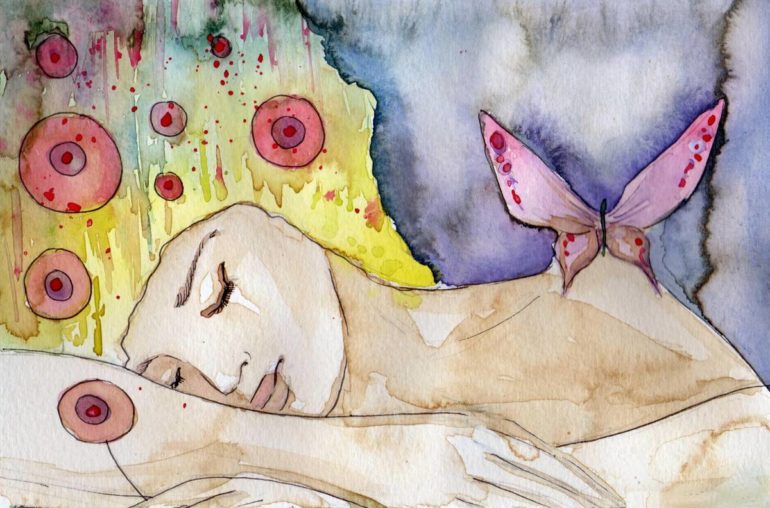How can you find out if you have a cold, flu or allergy?
What are the different symptoms between a cold and the flu and an allergy — and how can you tell which one you have?
Cold, flu or allergy? Know the difference for best treatment
You’re feeling pretty lousy. You’ve got sniffles, sneezing, and a sore throat. Is it a cold, flu, or allergies?
It can be hard to tell them apart because they share so many symptoms. But understanding the differences will help you choose the best treatment.
“If you know what you have, you won’t take medications that you don’t need, that aren’t effective, or that might even make your symptoms worse,” says NIH’s Dr. Teresa Hauguel, an expert on infectious diseases that affect breathing.
Cold, flu, and allergy all affect your respiratory system, which can make it hard to breathe. Each condition has key symptoms that set them apart.
Colds and flu are caused by different viruses. “As a rule of thumb, the symptoms associated with the flu are more severe,” says Hauguel. Both illnesses can lead to a runny, stuffy nose; congestion; cough; and sore throat.
But the flu can also cause high fever that lasts for 3 to 4 days, along with a headache, fatigue, and general aches and pain. These symptoms are less common when you have a cold.

Allergies
“Allergies are a little different, because they aren’t caused by a virus,” Hauguel explains. “Instead, it’s your body’s immune system reacting to a trigger, or allergen, which is something you’re allergic to.”
If you have allergies and breathe in things like pollen or pet dander, the immune cells in your nose and airways may overreact to these harmless substances. Your delicate respiratory tissues may then swell, and your nose may become stuffed up or runny.
“Allergies can also cause itchy, watery eyes, which you don’t normally have with a cold or flu,” Hauguel adds.
Allergy symptoms usually last as long as you’re exposed to the allergen, which may be about six weeks during pollen seasons in the spring, summer, or fall. Colds and flu rarely last beyond two weeks.
Some common treatments
Most people with a cold or flu recover on their own without medical care. But check with a health care provider if symptoms last beyond 10 days or if symptoms aren’t relieved by over-the-counter medicines. (For more about when to see a doctor, see the CDC’s Flu Page.)
To treat colds or flu, get plenty of rest and drink lots of fluids. If you have the flu, pain relievers such as aspirin, acetaminophen, or ibuprofen can reduce fever or aches. Allergies can be treated with antihistamines or decongestants.
Be careful to avoid “drug overlap” when taking medicines that list 2 or more active ingredients on the label. For example, if you take 2 different drugs that contain acetaminophen — one for a stuffy nose and the other for headache — you may be getting too much acetaminophen.
“Read medicine labels carefully — the warnings, side effects, dosages. If you have questions, talk to your doctor or pharmacist, especially if you have children who are sick,” Hauguel says. “You don’t want to overmedicate, and you don’t want to risk taking a medication that may interact with another.”

Cold, flu or allergy? Symptoms chart
Tips and treatments
| Symptoms | Cold | Flu | Airborne Allergy |
| Fever | Rare | Usual, high (100-102 °F), sometimes higher, especially in young children); lasts 3-4 days | Never |
| Headache | Uncommon | Common | Uncommon |
| General Aches, Pains | Slight | Usual; often severe | Never |
| Fatigue, Weakness | Sometimes | Usual, can last up to 3 weeks | Sometimes |
| Extreme Exhaustion | Never | Usual, at the beginning of the illness | Never |
| Stuffy, Runny Nose | Common | Sometimes | Common |
| Sneezing | Usual | Sometimes | Usual |
| Sore Throat | Common | Sometimes | Sometimes |
| Cough | Common | Common, can become severe | Sometimes |
| Chest Discomfort | Mild to moderate | Common | Rare, except for those with allergic asthma |
| Treatment | Get plenty of rest. Stay hydrated. (Drink plenty of fluids.) Decongestants Aspirin, acetaminophen, or ibuprofen for aches and pains |
Get plenty of rest. Stay hydrated. Aspirin, acetaminophen, or ibuprofen for aches, pains, and fever Antiviral medicines (see your doctor) |
Avoid allergens (things that you’re allergic to) Antihistamines Nasal steroids Decongestants |
| Prevention | Wash your hands often. Avoid close contact with anyone who has a cold. |
Get the flu vaccine each year. Wash your hands often. Avoid close contact with anyone who has the flu. |
Avoid allergens, such as pollen, house dust mites, mold, pet dander, cockroaches. |
| Complications | Sinus infection middle ear infection, asthma | Bronchitis, pneumonia; can be life-threatening | Sinus infection, middle ear infection, asthma |

Cold, flu or allergy?
Treatment depends on which you have. A health professional can help you choose the best therapy.
Common cold
- Symptoms last up to 2 weeks
- Stuffy, runny nose; sore throat; cough
- Treated with rest, fluids, over-the-counter (OTC) medicines to ease symptoms
Seasonal flu
- Symptoms usually last 1-2 weeks
- High fever (100-102 °F, or higher in youngsters), headache, aches and pains, weakness, exhaustion, cough, chest discomfort
- Treated with rest, fluids, OTC medicines, prescription antiviral drugs
Airborne allergy
- Lasts as long as allergens (such as pollen, pet dander) are present
- Stuffy, runny nose; itchy, watery eyes
- Treated with antihistamines, decongestants, nasal steroids







